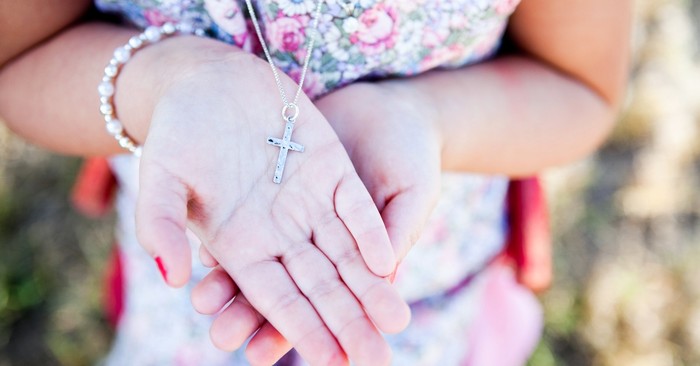
We need to be properly clothed so that when Christ returns, we shall be accepted into His feast. Furthermore, as we put on the Lord Jesus, we radiate His glory to the world. When others look at us, they see Christ and not ourselves.
There's a stark difference in how we dress during summer and winter. To cope with the searing heat during summer, we put on minimal layers of clothes, opting for light, sleeveless clothes made from breathable fabrics.
On the flip side, during winter, we pull on our thick socks, warm cardigans, hats, gloves, scarves, boots, and heavy jackets — our ammunition against the biting cold.
Just as we physically dress according to the weather, Paul invites us to be donned in a certain way spiritually if we are to live pure lives.
Let us walk properly, as in the day, not in revelry and drunkenness, not in lewdness and lust, not in strife and envy. But put on the Lord Jesus Christ, and make no provision for the flesh, to fulfill its lusts (Romans 13:11-14).
In the passage above, Paul appeals to the Roman church to awake from their slumber, seeing that lots of time had elapsed since they first believed. His call is laced with urgency. He is aware that Christ could come at any time.
He wants the Roman church to be found holy and blameless, without stain, wrinkle, or any other blemish (Ephesians 5:27). As such, Paul urges them to cast away the works of darkness that could taint them.
But that's not all; He gives them the formula to do that. They are to put on the Lord Jesus, thereby making no provision for the flesh to fulfill its lusts.
As believers, we are in a constant battle with our flesh. The flesh lusts against the Spirit, and the Spirit against the flesh so that we do not do the things that we wish (Galatians 5:17). Paul knows this battle all too well.
We find him lamenting that although he often wants to do good, evil is right there with him. Despite the tussle within him, Paul does not despair.
He is grateful that Jesus delivers him from the law of sin (Romans 7:21-25). This same Jesus is the one He recommends to us in our battle against sin. He wants us to put Him on.
But what does it mean to put on the Lord Jesus? Here are four things to consider:
1. Dying to Self and Allowing Christ to Live in You
Paul declared that He was crucified with Christ and that he no longer lived. It was Christ who lived in him (Galatians 2:20). The process of dying to self and crucifying our old self is a conscious and daily effort.
Though Christ’s redemptive work at the cross is sufficient and complete, we have a role to play. Christ does not force us to crucify our old self; we have to willingly lay down our lives for Him.
Jesus was not compelled to die on the cross for us. No one could take away His life, and He willingly laid it down (John 10:18).
Paul taught that those who are Christ’s have crucified the flesh with its passions and desires, a conscious effort. Putting on the Lord Jesus entails dying to our flesh and allowing Christ to live in us. Every day we must consciously choose to die to our flesh.
We must choose not to present our members as instruments of unrighteousness to sin but as instruments of righteousness to God. Christ died to set us free from the power of sin so that we can become slaves of righteousness (Romans 6:18).
2. Putting off Old Deeds
But now you yourselves are to put off all these: anger, wrath, malice, blasphemy, filthy language out of your mouth. Do not lie to one another, since you have put off the old man with his deeds, and have put on the new man who is renewed in knowledge according to the image of Him who created him (Colossians 3: 8-10).
To put on the Lord Jesus, we must first put off what we were previously donned in — our old deeds. This means that we must frown on our fleshly desires and earthly pleasures and seek the things above.
Like Paul, we must despise the things that were once of gain to us and count them as rubbish for the sake of Christ (Philippians 3:8).
Putting off our old deeds is a conscious choice to tread the narrow road that leads to life. It is consciously laying aside every weight and the sin which so easily ensnares us and running with endurance the race that is set before us (Hebrews 12:1).
After we have put off the old self, we are then able to put on the new self, which was created according to God, in true righteousness and holiness (Ephesians 4:24).
3. Walking in Wisdom
See then that you walk circumspectly, not as fools but as wise, redeeming the time, because the days are evil. Therefore do not be unwise, but understand what the will of the Lord is (Ephesians 5:15-17).
Walk in wisdom toward those who are outside, redeeming the time (Colossians 4:5).
Before Paul urges the Roman church to put on the Lord Jesus, He urges them to arise from their slumber since the night was far spent.
He wants them to be ready for Christ's return by being alert and casting away the works of darkness (Romans 13:11-12). He wouldn't want them to be caught off guard when Christ returns.
Jesus gave a parable of the five wise and five foolish virgins. The foolish virgins took their lamps with them all right but did not bring any oil with them. They only went to look for oil when they caught wind that the bridegroom was on his way.
Sadly, the bridegroom returned in their absence, and the door was shut. Jesus summed up the parable by warning His followers to be watchful since none of them knew the day or hour of His coming (Mathew 25:1-13).
We, too, must walk wisely and not as fools. We must ensure Christ finds us ready when He returns because He will appear like a thief in the night. Our actions must be laced with a sense of urgency, redeeming the time because the days are evil.
4. Donning the Garment of Righteousness
I delight greatly in the Lord; my soul rejoices in my God. For he has clothed me with garments of salvation and arrayed me in a robe of his righteousness, as a bridegroom adorns his head like a priest, and as a bride adorns herself with her jewels(Isaiah 61:10).
Ultimately, Jesus is coming back for His bride — the church. He desires to meet His bride without wrinkle or blemish.
We are to be clothed with the garment of salvation and robe of righteousness in readiness for His return. We have to have the right garment if we are to get access to His kingdom.
In the parable of the wedding feast, there was a man without a wedding garment. This enraged the king, who asked his servants to bind him and cast him into outer darkness (Mathew 22:1-13).
We need to be properly clothed so that when Christ returns, we shall be accepted into His feast. Furthermore, as we put on the Lord Jesus, we radiate His glory to the world. When others look at us, they see Christ and not ourselves.
For further reading:
What Is the Full Armor of God?
What Does a Christ-Centered Life Look Like?
How Is Representing Christ a Great Responsibility?
Photo Credit: ©iStock/Getty Images Plus/DCINK










